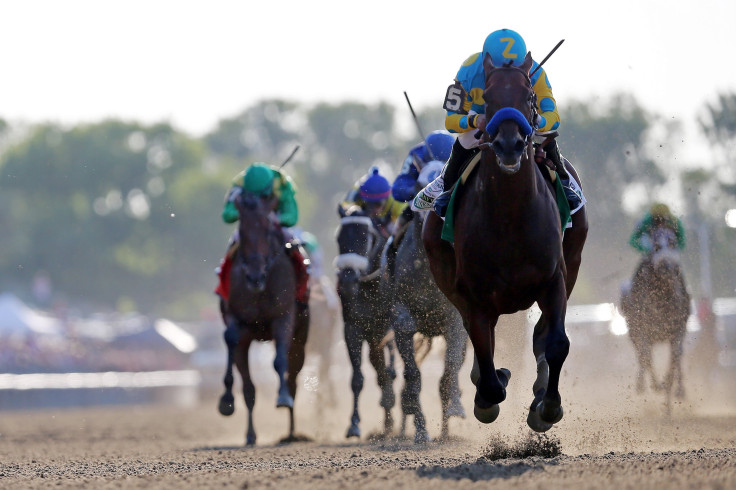Kentucky Derby 2016 Winner: How The Past 10 Horses Performed After Capturing The Run For The Roses

No matter which contender from the 20-deep Kentucky Derby field wins Saturday at Churchill Downs, history shows they aren’t guaranteed success at the two other Triple Crown jewels in the coming weeks.
Every thoroughbred’s connections have huge dreams of their three-year-old cracking open horse racing’s history books and becoming just the 13th horse to win the elusive Triple Crown. Last year American Pharoah took down the Derby in convincing fashion and went on to sew up the Preakness Stakes at Pimlico and the Belmont Stakes in New York, ending a four-decade long Triple Crown drought.
While American Pharoah and trainer Bob Baffert’s success brought increased attention to the sport and the Triple Crown last year, there’s no assurance this year’s winner will have equal success.
Here’s a quick look at the last 10 Run for the Roses winners and how they fared after the Derby.
American Pharoah (2015)
Among the most accomplished thoroughbreds in several decades, American Pharoah broke the long Triple Crown drought by winning the Preakness and Belmont Stakes, and then capped it off with a victory at the Breeders Cup Classic. He's the only horse to ever win all four major stakes races.
California Chrome (2014)
Went on to win the Preakness but fell short at Belmont, finishing tied for fourth with Tonalist finishing first. Still, he was the toast of the sport and stood as symbol for less wealthy stables due his lineage and cheap $10,000 price tag, a pittance in horse racing.
Orb (2013)
The Unbridled three-year-old trudged through a sloppy and wet track to win the Derby, but his Triple Crown hopes were dashed with a fourth-place finish at the Preakness. He would then come in third at the Belmont.
I’ll Have Another (2012)
Purchased for a mere $35,000 and entering the gate at 15-1 odds, I’ll Have Another beat 4-1 Bodemeister by more than a length with a rally down the home stretch. I’ll Have Another next claimed the Preakness but was scratched from the Belmont due to tendonitis in his left front leg and never raced again.
Animal Kingdom (2011)
With a replacement jockey aboard, this 20-1 longshot claimed the Derby by 2 3/4 lengths and owning the middle of the track in the home stretch. He came close to winning the Preakness with a runner-up finish, but followed with a disappointing sixth-place run at the Belmont.
Super Saver (2010)
The first Derby victory for esteemed trainer Todd Pletcher, Super Saver took control in the last quarter mile and hugged the rail for a 2 1/2 length win on a very sloppy track. Alas, an eighth-place showing at the Preakness took the air out of his sails and Super Saver didn’t run at the Belmont.
Mine That Bird (2009)
An unfathomable 50-1 longshot when he entered the starting gate with 17 other contenders, this son of Smart Strike came from out of nowhere for a 6 3/4-length win. He saved some gas for a runner-up at the Preakness and third-place at Belmont. The Derby stood as the last victory of Mine That Bird’s career.
Big Brown (2008)
Becoming the first horse to win the Derby with just three previous races under his belt, Big Brown’s victory was overshadowed by filly Eight Belles’ injury and subsequent euthanizing on the track. Big Brown would secure the Preakness but stumbled at the Belmont for ninth-place.
Street Sense (2007)
Jockey Calvin Borel waited until the final quarter of a mile to move Street Sense to the outside and he responded by moving all the way up from next-to-last for a 2 1/4-length Derby victory. He was the first 2-year-old in nearly 20 years to win the Derby, but finished second to Curlin at the Preakness and skipped the Belmont.
Barbaro (2006)
A convincing 6 1/2-length Derby win helped Barbaro find a place in horse racing’s collective heart, but he suffered fractures in his right hind ankle in the first sixteenth of a mile at the Preakness. After an eight-month battle to regain his health, Barbaro was euthanized but still holds a special place in racing history.
© Copyright IBTimes 2025. All rights reserved.





















